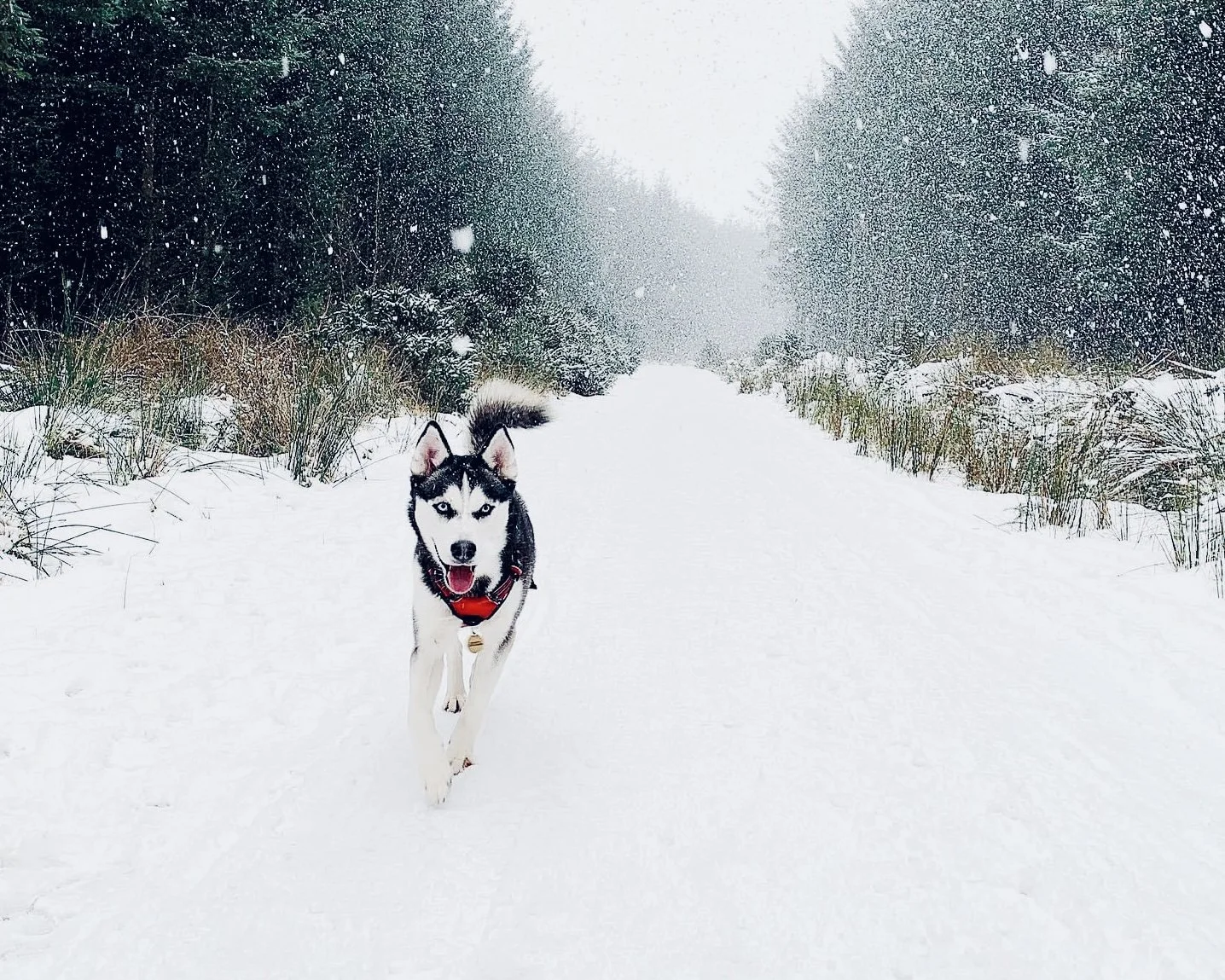What is perfection?
Meet the past and present gang
I often hear that being a dog trainer my dogs must be perfect. My reply is always the same; that to me they are, but it depends on what you view as perfect.
I, like many other dog trainers, tend to fall in love with dogs that have additional behaviour needs.
What does perfect look like for you?
For dogs with this eclectic mix of needs, my expectations of them will differ. With every dog, I ask myself: do I NEED them to do a particular behaviour, cope in a particular environment/situation - or do I simply WANT them too.
I don’t need my dogs to;
Be able to be off lead at all times.
Have heaps of other ‘doggy friends’
Be able to go to cafes/pubs
Go on massive long hikes
Be able to come everywhere with me
Be comfortable receiving cuddles
I do need them to;
Be able to relax and switch off at home
Feel comfortable with family visiting
Be comfortable communicating when they’re not happy
Be able to listen to me
Find more value in me, over other things when out and about
See me as their safe space
‘Your dogs don’t have issues’
With all of my dogs, as a stranger looking in, you wouldn’t know the behavioural issues I’ve worked on. They walk nicely on lead, they recall if I’ve let them off lead, they generally stay close to me if they’re off lead, they ignore other people/dogs, they ignore wildlife.
That is because I don’t put my dogs in situations they feel uncomfortable, I won’t take them to the dog park if the mere smell of another dog cause a reaction. I won’t force them to get closer to strange dogs ‘because all dogs needs to be friends’. I won’t give them food/toys next to each other and ‘let them figure it out’. I don’t have them off lead the entirety of their walk.
I will give them space from their triggers to remain relaxed. I will utilise barriers and control and management, so that they don’t feel the need to resource guard. I will introduce fun games and behaviours so they’re more interested in me than any triggers. I will improve their confidence levels; in themselves, in me so they feel feel comfortable with the choices I make for them and the choices they make for themselves.
Final Thoughts:
A key saying amongst dogs trainers is ‘Train the dog in front of you’
When you think about your dog, and what you want them to be able to do or cope with - ask yourself why?
Does it benefit your dog?
Is it an outlet for a breed specific behaviour?
Is it something they’re physically able to do?
Is it fun?
Is it for safety?
Try not to compare your dog to other dogs. Hours upon hours of training goes into a consistent recall, or loose lead walking, or calmness around other dogs to name a few behaviours. Dogs are living, breathing sentient beings. Just like us they can also have their off days. So even when you’ve put in the hours of training, even when you’ve practiced the cues in plenty of environments with distractions, there may come a time where your dog looks at you confused as if they’ve never heard you speak to them before (usually at the most in-opportune situation as well)
Try not to take it personally, think about all the times they’ve performed the cue perfectly and chalk it up to an experience.
Until next time
Gem
XOXO




